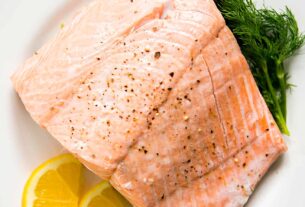 Quite a long time ago if Cape Codders needed a grand lobster feast they simply strolled
Quite a long time ago if Cape Codders needed a grand lobster feast they simply strolled
down to the shore, swam in and culled everything they could convey by the armload. In
certainty, the Pilgrim Miles Standish detailed that, after a decent nor’easter,cold water lobsters could be found in heaps eighteen inches deep at the water’s edge and assembled without
anybody in any event, getting their toes wet.
Homarus Americanus, on the other hand known as the New England, Maine, or Atlantic
lobster, once flourished in such significance here on Cape Cod that the colonists really
utilized them, not as food, however as manure for their harvests or as snare for their fish
snares. As food, lobster was minimal more than “destitution food,” fit distinctly for
taking care of contracted workers, slaves, youngsters or dairy animals, in a specific order. Here in
Massachusetts, the workers did at last renegade and won a change to their
gets No longer would they be compelled to eat lobster multiple occasions a
week.
Today obviously, the lobster positions as the ruler of all mid year nourishments, progressively a
festivity than a supper. For lobster-darlings a lethargic summer day heating at the sea shore
is just preface to the stature of extravagance tying on the lobster face cloth, opening up
the extraordinary forks, picks, and paw saltine, and consulting the spot tangle with its
numbers laying out, bit by bit, how to eviscerate your cold water lobster to remove its full
substance.
We New Englanders so love the lobster that Logan Airport has its own lobster pool,
whose feisty occupants stand by to be dispatched to all purposes of the globe via air express.
It was not generally so. Truth be told there is minimal about the historical backdrop of this belligerent
scavanger that would anticipate its selective ascent to notoriety in the American eating routine
today.
The History
On an excursion to the Cape guided by Squanto on September 18, 1621, Miles Standish
was struck by the inescapable swarms of cold water lobsters. He discovered “savages chasing
lobsters” in Barnstable, and, at dawn the next morning in Nauset Harbor, he
moved to get his very own portion:
“There we discovered numerous lobsters that had been assembled by the savages,
which we prepared under a bluff. The chief set two sentinels behind the precipice to
the landward to make sure about the shallop, and taking a guide with him and four of our
organization, went to look for the occupants; where they met a lady wanting her
lobsters, they advised her of them, and placated her for them.”
The potential for the animal in the American eating regimen was noted not just here on Cape
Cod, obviously, however up and down the New England coast. In June 1605 Captain George
Waymouth, out traveling to Maine, was likewise struck by the overflowing populaces of
American Lobster, a nearby cousin to the littler Spiny lobster of Europe:
“What’s more, towards night we drew with a little net of twenty understands near the shore;
we got around thirty excellent and incredible lobsters… which I discard not to report,
since it sheweth how extraordinary a benefit the fishing would be.”
By and by, lobstering as an industry started, not in Maine, yet directly here on Cape
Cod. Populaces were high to the point that the commonplace lobster went for a unimportant a few
pennies each. Indeed, lobstermen on Monomoy’s Whitewash Village are said to have
gotten by at a penny each. The shellfish developed to such measure that they
were regularly detailed up to five and six feet in length in the business sectors of Boston. One
gargantua arrived at a load of about forty-five pounds.
In contrast to different sorts of fish, lobster must be dispatched alive. Uncooked dead lobsters
create toxic poisons that will nauseate or conceivably murder any individual who eats them.
Along these lines the lobster business, as we probably am aware it today, didn’t get conceivable until
the mid nineteenth century with the advancement of lobster smacks, cruising vessels
with seawater tanks in their hold. By 1840 Provincetown had five of these smacks
dedicated full-an ideal opportunity to transportation lobsters between the Cape and New York City. The
industry was given further lifts by the advancement of canning industrial facilities in New
Britain during the 1840s, and furthermore by the happening to the railroad and improved techniques
of saving food with ice.
Cape Cod at first gave the entirety of the cold water lobsters for the inland urban markets, however, by
the Civil War, populaces had been fished so low that purchasers went to the waters
of Maine to satisfy request. As lobstering turned into an indefatigable and undeniable New
Britain industry, guidelines were comparably authorized to limit the size and season
of the catch, and populaces for the only remaining century have remained strikingly steady.
Cape Cod Today
At Chatham Harbor on a shining summer day, with little wind and no ocean
running, the pleasant perspective on lobstermen tending their beautiful pots near
shore invokes a perfect lifestyle. Indeed, even inside the fishing business itself,
lobstering is desirously alluded to by individual longliners and gillnetters as a simple
“noble man” fishery.
“All things considered, we are fortunate here in Chatham,” says multi year-old Chatham local and
lobsterman Ben Bergquist. “A great deal of the best fishing is only 8 miles from shore and,
by and large everywhere throughout the Cape, we have awesome lobster natural surroundings with great base –
all inside twenty-five miles. It is a great fishery when it’s acceptable, however it resembles anything
else- – when it’s not working out in a good way, it’s completely hopeless, and steadiness means
everything. Each and every individual who brings in cash from the sea needs to work to make that
cash. It’s everything up to you in the event that you need to get up in the first part of the day and work or
not, regardless of what the fishery, and lobstering is the same.”


